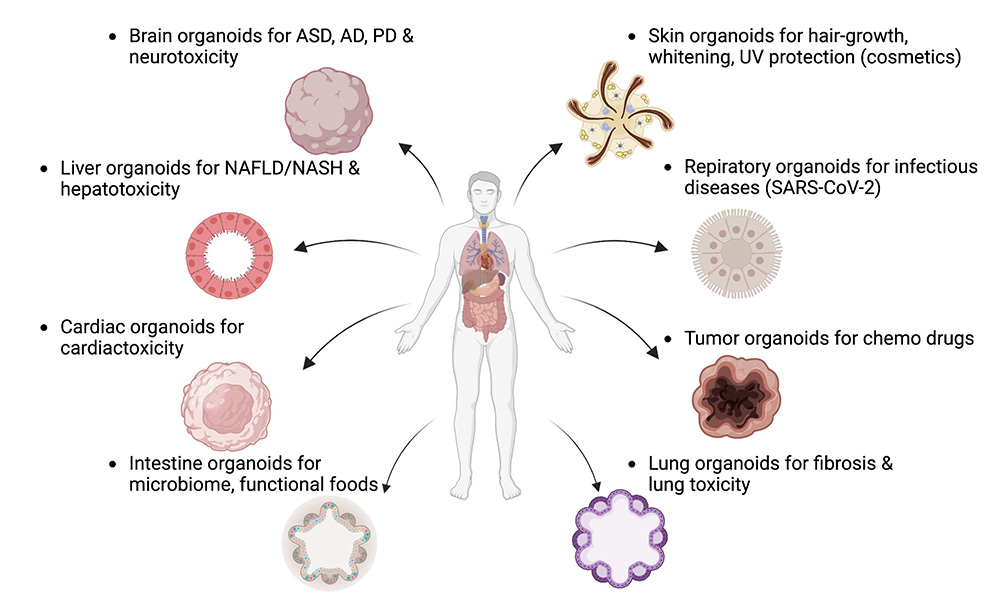① Lack of large-scale production platform
② Having tedious differentiation steps and a lengthy process
③ High production cost
④ Deviation in cell types
⑤ Limited functionality and structural features
⑥ There are significant differences between individuals and batches

NUOXINTE's MICRO technology can produce a large number of mature organoids with the same shape and size in a short period of time, greatly reducing production costs. If you need large-scale organoids with small individual differences, NUOXINTE's MICRO organoid technology can provide a solution.
① Large scale production of 96 and 384 well plates
② Small differences between individuals and batches
③ Shortened production cycle and low cost
④ Rich mature dopamine neurons
⑤ Production of Neurorelaxin like Particles
⑥ Mature electrophysiological activity
① Large scale production of 96 well plates
② Low production cost
③ Diverse cell types (liver cells, bile duct cells, hepatic stellate cells, Kupffer cells, sinusoidal endothelial cells)
④ Complete functional and structural features
⑤ Simulation of non-alcoholic fatty liver disease (NAFLD)

① Brain organoids used for ASD, AD, PD, and neurotoxicity
② Liver organoids used for NAFLD/NASH hepatotoxicity
③ Heart like organs used for cardiac toxicity
④ Intestinal organoids used for microorganisms and functional foods
⑤ Skin organoids are used for hair, whitening, and UV protection
⑥ Respiratory organs used for infectious diseases
⑦ Cancer organoids used for chemotherapy drugs
⑧ Lung organoids are used for fibrosis and pulmonary toxicity